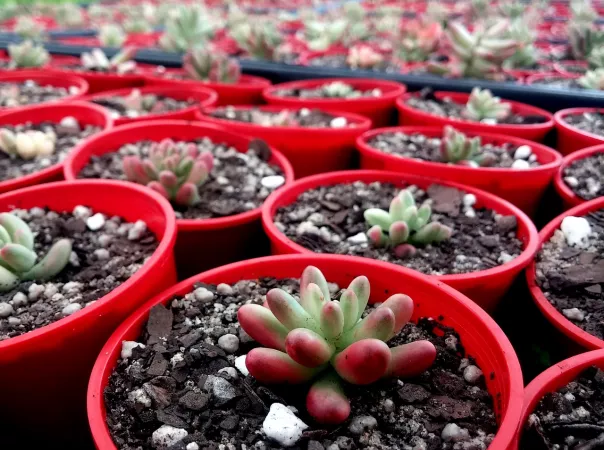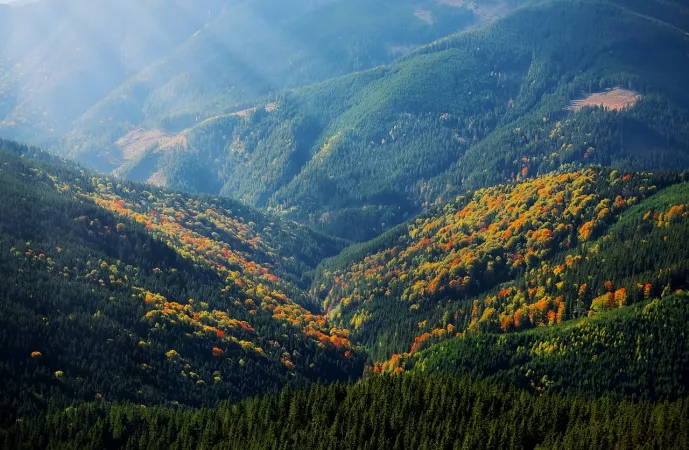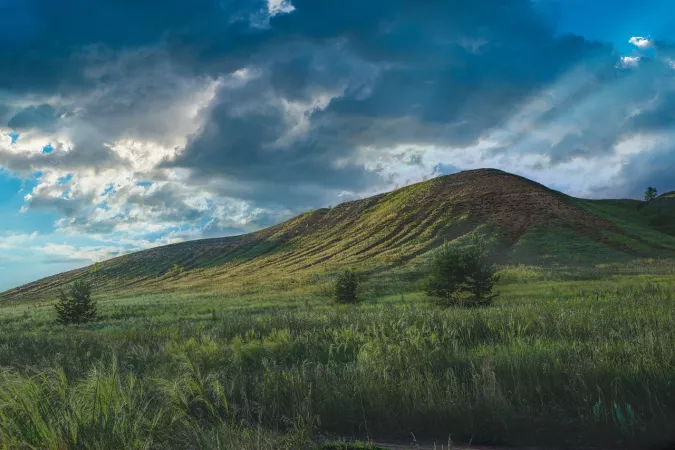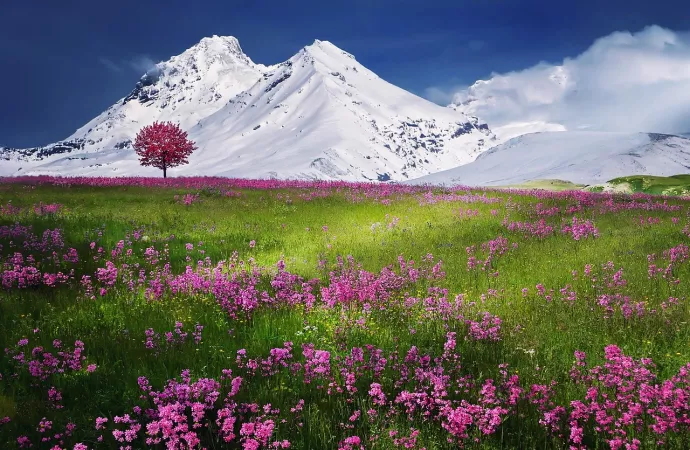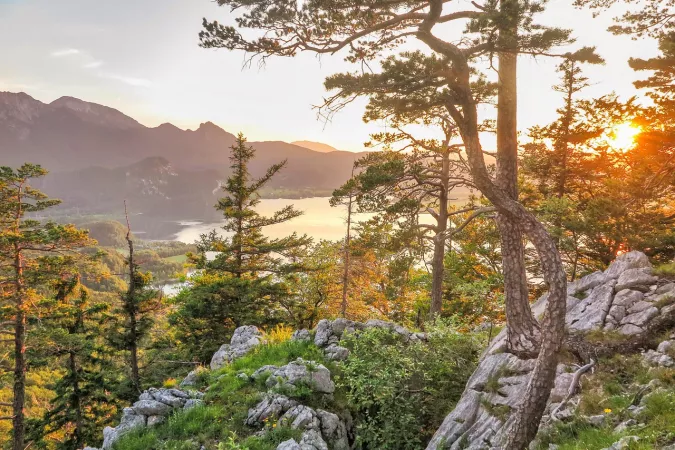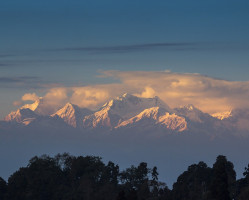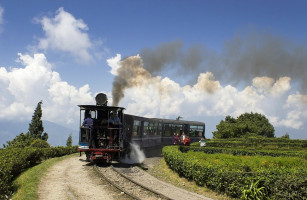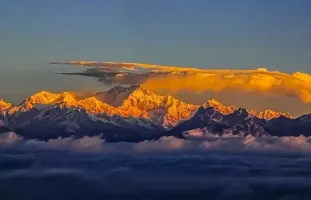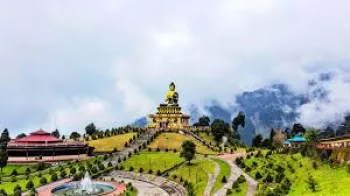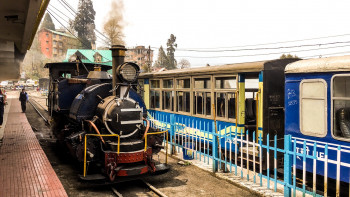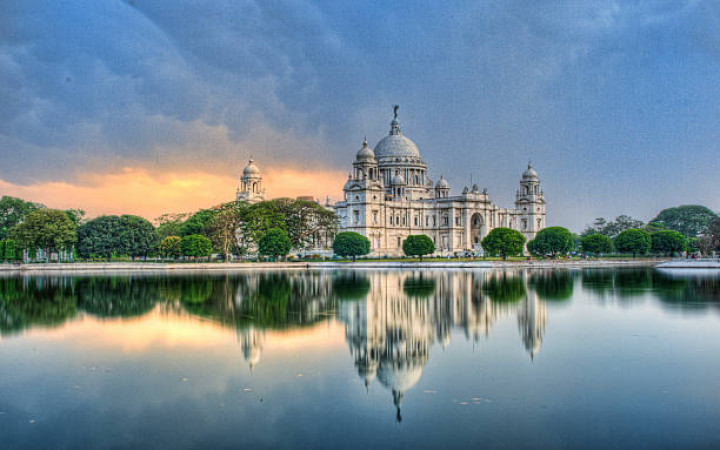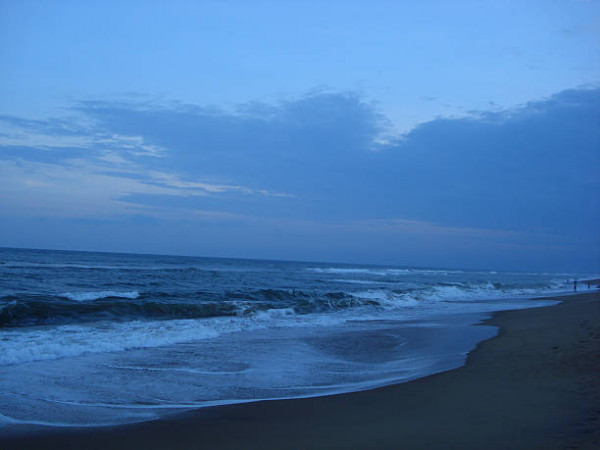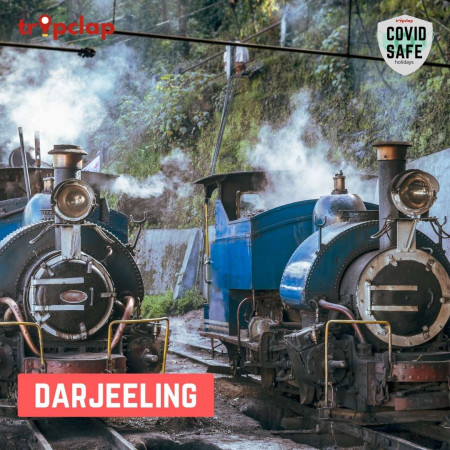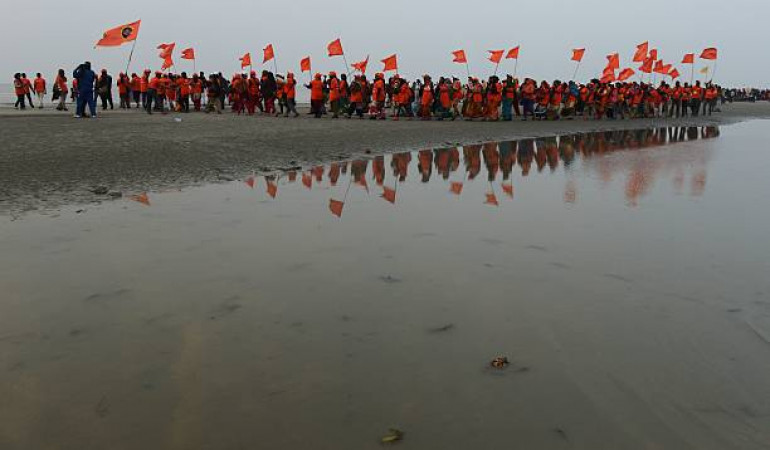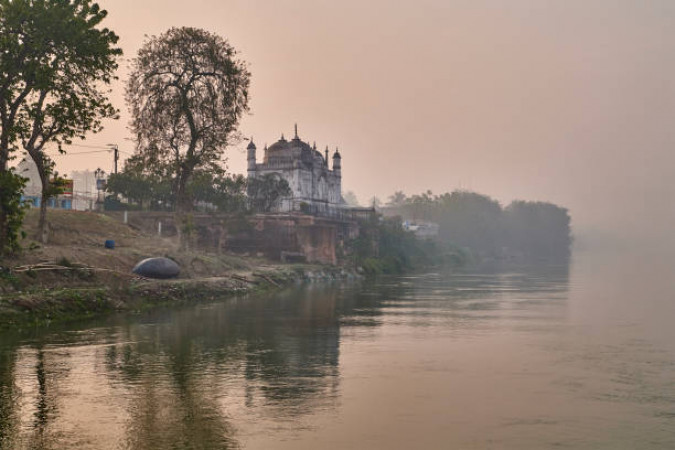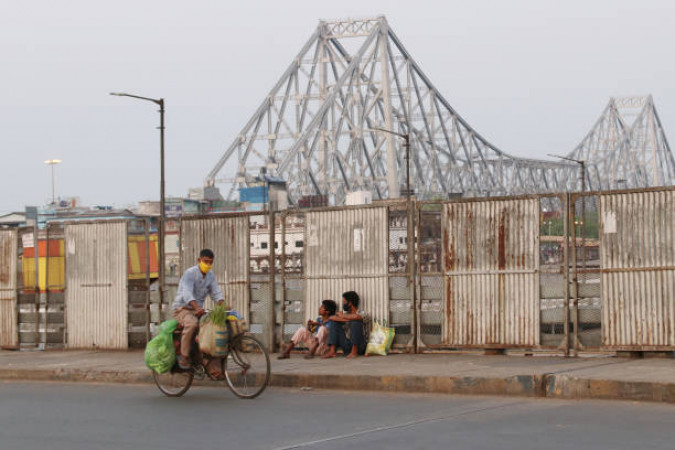
Kalimpong
Package
6500 to 21000
6500 to 21000
Duration
2 to 4 Days
2 to 4 Days
Best time to visit
Mar-May, Oct-Nov
Mar-May, Oct-Nov
Theme
Hill Station, Adventure, Heritage
Hill Station, Adventure, Heritage
Kalimpong Travel Guide
Kalimpong, a charming hill station nestled in the Indian state of West Bengal, is renowned for its breathtaking views of the Himalayas and serene ambiance. With a rich history as a former British colonial trade center and a vibrant cultural heritage, Kalimpong offers visitors a unique blend of traditions, architecture, and natural beauty. This quaint town is famous for its bustling markets, Buddhist monasteries, and tea gardens that attract travelers seeking a peaceful retreat in the lap of nature.Top Attractions in Kalimpong
- Deolo Hill
- Durpin Monastery
- Mangal Dham
- Pine View Nursery
- Lepcha Museum
Kalimpong is Famous for
Tea plantations and panoramic views of the Himalayas.Top Attractions in Kalimpong
- Exploring the lush tea gardens
- Visiting the serene monasteries
- Shopping at local markets for handicrafts
- Enjoying a picnic at Deolo Hill
- Learning about the local culture at Lepcha Museum
What's Great about Travelling to Kalimpong?
- Peaceful hill station getaway
- Rich cultural experiences
- Breathtaking views of the Himalayas
What's Not So Great about Travelling to Kalimpong?
- Limited nightlife and entertainment options
- Narrow and winding roads for those prone to motion sickness
- Limited public transportation
Travel Tips for Kalimpong
- Carry warm clothing, as the weather can get chilly
- Book accommodations in advance, especially during peak tourist seasons
- Respect the local customs and traditions, especially when visiting religious sites
Important Kalimpong trip information
- Ideal Duration: 3-4 days
- Best Time to Visit: March to May and September to November
- Nearby Airports and Railway Stations: Bagdogra Airport (75 km) and New Jalpaiguri Railway Station (77 km)
Top 17 Places to visit in Kalimpong
Per Person
28,000
*EXCLUDING APPLICABLE TAXES 3.7 Ratings
( 5 Reviews )
( 5 Reviews )
Per Person
5,800
*EXCLUDING APPLICABLE TAXES 5.0 Ratings
( 199 Reviews )
( 199 Reviews )
Total
9,000
*EXCLUDING APPLICABLE TAXES 4.8 Ratings
( 36 Reviews )
( 36 Reviews )
Per Person
41,000
*EXCLUDING APPLICABLE TAXES 5.0 Ratings
( 157 Reviews )
( 157 Reviews )
Per Person
13,000
*EXCLUDING APPLICABLE TAXES 4.8 Ratings
( 36 Reviews )
( 36 Reviews )
Per Person
24,000
*EXCLUDING APPLICABLE TAXES 3.7 Ratings
( 5 Reviews )
( 5 Reviews )
FAQ's on Kalimpong
Q1: What is the best time to visit Kalimpong?
The best time to visit Kalimpong is during the spring (March to May) and autumn (September to November) months when the weather is pleasant, and the skies are clear. These seasons offer ideal conditions for exploring the lush greenery, blooming flowers, and panoramic mountain views. Avoid the monsoon season (June to August) due to heavy rainfall which can lead to landslides and road closures. Winter (December to February) is cold but offers a unique charm with snow-capped peaks in the distance.
Q2: Do I need a visa to travel to Kalimpong?
Most visitors to Kalimpong will need a valid Indian visa to enter the country, unless they are from a visa-exempt country. Travelers should check the specific visa requirements based on their nationality and travel purpose. It's recommended to apply for a tourist visa well in advance of your trip to avoid any last-minute complications. Make sure your passport has a validity of at least six months beyond your intended stay in India.
Q3: What are the must-visit attractions in Kalimpong?
Kalimpong boasts a range of attractions, including the serene Deolo Hill for panoramic views, the historic Durpin Monastery, the exotic flower nurseries, and the bustling local markets. The iconic Zang Dhok Palri Phodang Monastery, the tranquil Pine View Nursery, and the adventurous Neora Valley National Park are also popular spots. Don't miss the charming Dr. Graham’s Homes for a glimpse into the local history and culture. Whether you're into nature, culture, or adventure, Kalimpong has something for everyone.
Q4: Is Kalimpong a safe place to travel?
Kalimpong is generally considered safe for travelers, with a low crime rate. However, like any destination, it's essential to stay cautious and be mindful of your surroundings, especially in crowded areas and at night. Avoid walking alone in remote areas and always keep your belongings secure. While the locals are friendly and welcoming, it's advisable to respect the local customs and traditions. In case of any emergencies, keep the contact information of your embassy or consulate handy.
Q5: What is the local currency in Kalimpong and can I use credit cards?
The local currency in Kalimpong is the Indian Rupee (INR). While credit cards are accepted at some hotels, restaurants, and larger stores, it's advisable to carry cash for smaller establishments and local markets. ATMs are available in the main town area for convenient cash withdrawals. Notify your bank of your travel plans to avoid any issues with card transactions. Money exchange services are also available for exchanging foreign currency into Indian Rupees.
Q6: What is the local cuisine like in Kalimpong?
The local cuisine in Kalimpong offers a delightful blend of Tibetan, Nepali, and Indian flavors. Don't miss trying momos (dumplings), thukpa (noodle soup), and shaphaley (fried stuffed bread) for a taste of the region. Savor traditional dishes like gundruk ko achar (fermented leafy greens pickle) and phagshapa (pork with radish) for a unique culinary experience. Vegetarians will enjoy dishes like alu dum (spiced potato curry) and gya thuk (vegetable stew). Finish off your meal with sweet treats like sel roti (rice flour doughnut) and khapse (deep-fried cookies) for a satisfying end to your culinary journey.
Q7: What transportation options are available in Kalimpong?
Kalimpong offers various transportation options for getting around the town and nearby areas. Public buses and shared jeeps are the most common modes of transport for short distances within the town and to neighboring villages. Taxis and auto-rickshaws are also available for convenient point-to-point travel. For exploring attractions further afield, consider hiring a private car or booking a guided tour. Renting a motorcycle or bicycle is a popular choice for those seeking independence and flexibility in their travels. Remember to negotiate fares beforehand and confirm the route with the driver for a hassle-free journey.
Q8: Are there any cultural norms or etiquette I should be aware of when visiting Kalimpong?
When visiting Kalimpong, it's essential to respect the local customs and etiquette to ensure a positive and enriching experience. Remember to remove your shoes before entering religious sites and show reverence in these sacred places. Dress modestly, especially when visiting temples and monasteries, by covering your shoulders and knees. Seek permission before taking photographs of locals, particularly in rural areas. Greet people with a warm "Namaste" (hello) or "Tashi Delek" (Tibetan greeting) and be polite in your interactions. Avoid public displays of affection and loud behavior to maintain cultural sensitivity. By embracing the local customs and traditions, you'll foster meaningful connections with the people of Kalimpong.
Q9: I am a travel agent. How can I buy travel leads of Kalimpong?
Register yourself as a travel agent at agents.tripclap.com and then you can buy travel leads to Kalimpong once your account is approved. For more details contact our support team at +91-8069186564 or support@tripclap.com
